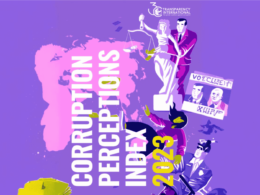Organisations remain committed to sustainability despite global economic and geopolitical uncertainty, according to the fourth edition of the Capgemini Research Institute’s report A world in balance 2025: Unlocking resilience and long-term value through environmental action, released today. The study found that three-quarters of companies view sustainability as a core strategy for future-proofing competitiveness, innovation and resilience.
However, the research highlights a growing disconnect between perceived preparedness and actual resilience, suggesting that many firms are mistaking strategic planning for concrete action on climate adaptation.
More than four in five organisations intend to increase investment in environmental sustainability this year, up eight percentage points from 2024. Regulation remains the primary driver of these efforts, followed by business benefits such as profitability, cost savings and operational efficiency. Yet only 21% of companies have developed detailed transition plans with interim targets and capital allocation. Internal barriers include budget constraints, weak data systems and organisational silos, while externally, two-thirds of executives said geopolitics is slowing investment.
The survey revealed that climate impacts are already disrupting supply chains, production and raw material availability for over 70% of companies, with two-thirds also expecting difficulties in managing insurance and financial risks. While most executives recognise the importance of adaptation, more than half admit their organisations are underprepared. Only 38% are upgrading infrastructure, 31% are relocating production to less climate-exposed regions, and 26% are redesigning products.
“Although sustainability regulations are putting less pressure on organisations, business leaders still see sustainability as a core driver of business value. However, with global uncertainty and constrained budgets, many companies are facing a reality check,” said Cyril Garcia, Head of Global Sustainability Services and Corporate Responsibility and Group Executive Board Member at Capgemini. “With climate risks increasingly high on the corporate agenda, business leaders need to adopt a pragmatic, operational approach and urgently implement concrete, financed transition and adaptation measures.”
The report also flags concerns around artificial intelligence. Nearly two-thirds of executives said their organisations are using AI to advance sustainability, yet 57% acknowledged that the environmental impact of generative AI is under board-level discussion. Fewer than a third have taken steps to mitigate this footprint, while the share of executives believing GenAI’s benefits outweigh its costs has fallen from 67% in 2024 to 57% in 2025.
Consumer scepticism is also rising. The proportion of consumers who believe companies engage in greenwashing has nearly doubled in two years, from one-third in 2023 to 62% this year. More than three-quarters said corporations should do more to reduce greenhouse gas emissions, yet only a quarter consider sustainable products affordable and just 16% feel they have adequate access to sustainability information.
The findings are based on a global survey of 2,146 executives from 716 organisations with annual revenues exceeding $1 billion, spanning 12 industries across 13 countries in North America, Europe and Asia-Pacific. The Institute also surveyed 6,566 consumers and conducted interviews with 15 senior executives worldwide.





















